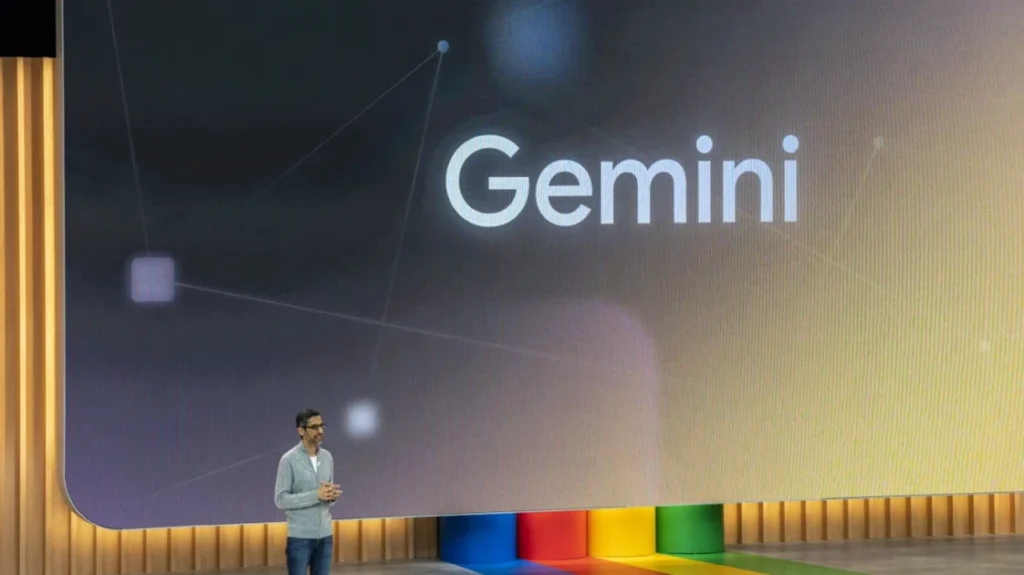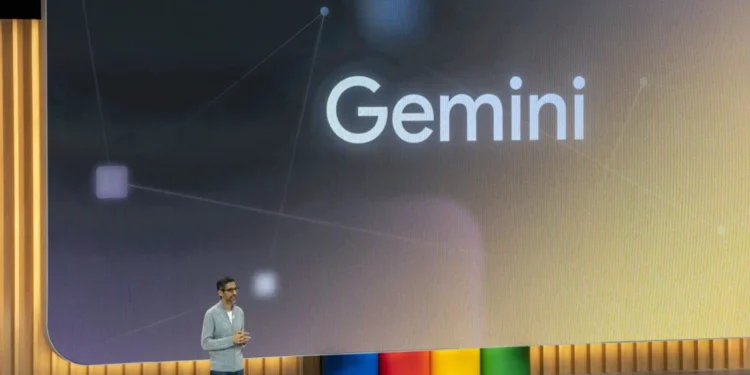California, United States | NOW THEN DIGITAL — Google just launched Gemini, its big move into the world of generative artificial intelligence. They’re calling it their “largest and most capable AI model” and foresee a “Gemini era” where it’s everywhere from big companies to your Google Pixel 8 Pro.

What makes Gemini stand out is that it’s not your usual one-trick AI pony. Most models handle just one type of input, like text or images, but Gemini is “multimodal.” It can handle text, images, audio, video, and even programming code – a real multitasker.
Sundar Pichai, Google’s CEO, called this a big deal, saying it’s one of the most significant science and engineering efforts they’ve ever taken on. They’ve already upgraded their AI chatbot, Bard, with a taste of Gemini and plan to sprinkle it across their popular products, like the search engine and Chrome web browser.
Why this push? Well, a year ago, OpenAI’s ChatGPT stole the show, and Google didn’t want to be left behind. Gemini comes in three sizes: Nano for mobile devices, Pro for everyday tasks, and Ultra, their most sophisticated model still going through safety testing.
The launch also shines a light on Google’s cloud computing prowess. They trained Gemini using powerful cloud-based processors, claiming they can whip large AI models into shape three times faster than before. It’s a potential game-changer for the AI industry, making training more accessible and helping Google keep its place in the cloud services race.
But, and there’s always a but, it’s unclear how Google’s AI chips compare to the heavyweights like Nvidia. Google’s not blind to the risks either. Eli Collins, VP of Product at Google DeepMind, mentioned Gemini’s excellent performance in tests but also acknowledged the risk of AI models serving up wrong info with confidence. They’ve put in work to improve factuality, especially in Bard, but admit that large language models can still “hallucinate.”
To play it safe, Google’s taking it slow with Gemini Ultra, their top-tier model. They’re rolling it out gradually to select folks for experimentation and feedback. It’s currently under third-party safety evaluations, a promise they made to the Biden administration.
In a nutshell, Google’s stepping up its AI game with Gemini, aiming for widespread use and better performance, but they’re also keeping an eye on the risks and taking things one step at a time.
















